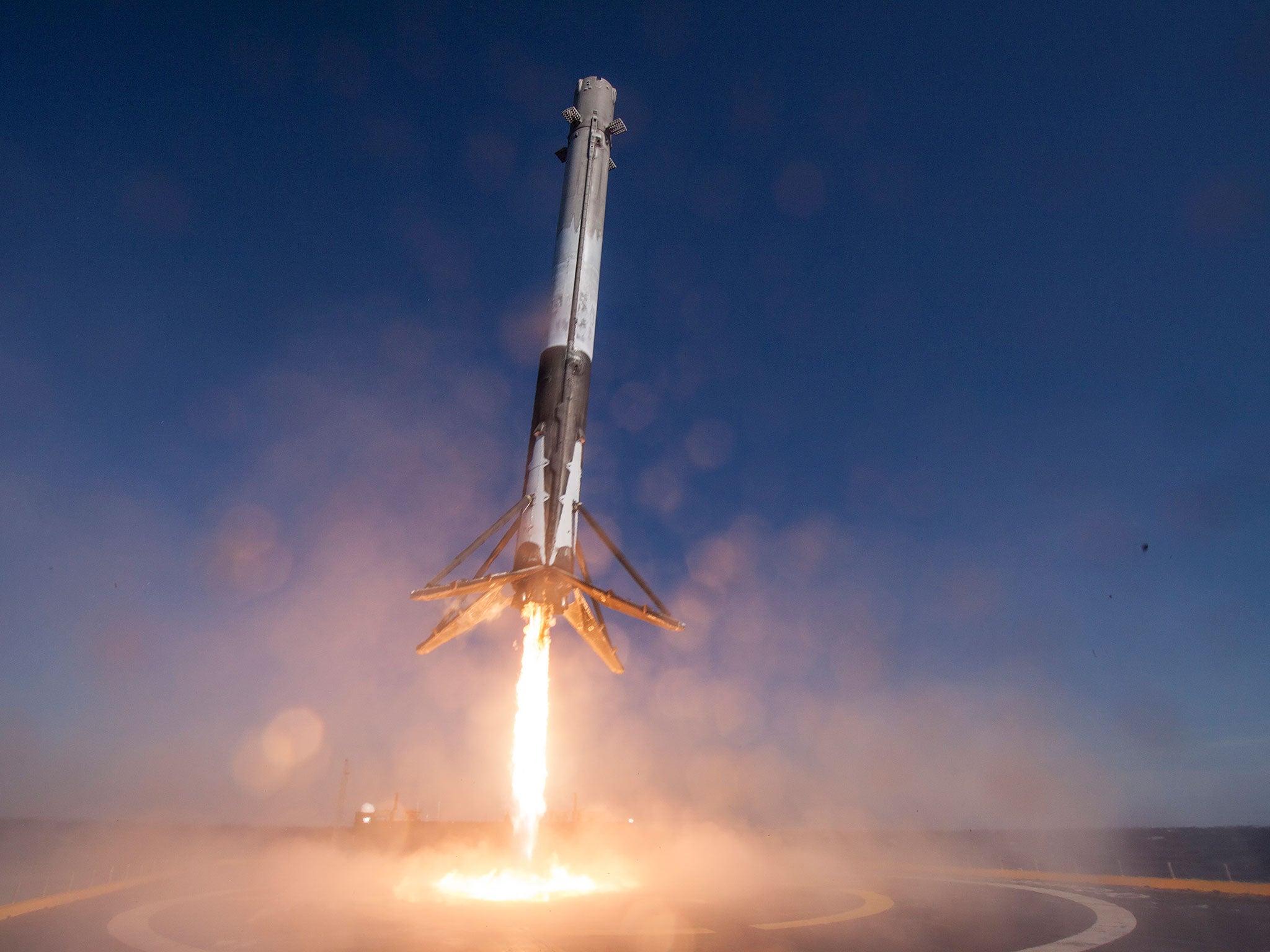SpaceX successfully lands Falcon 9 rocket at sea for the second time
The rocket touched down on an unmanned ship after successfully delivering a satellite into space

Your support helps us to tell the story
From reproductive rights to climate change to Big Tech, The Independent is on the ground when the story is developing. Whether it's investigating the financials of Elon Musk's pro-Trump PAC or producing our latest documentary, 'The A Word', which shines a light on the American women fighting for reproductive rights, we know how important it is to parse out the facts from the messaging.
At such a critical moment in US history, we need reporters on the ground. Your donation allows us to keep sending journalists to speak to both sides of the story.
The Independent is trusted by Americans across the entire political spectrum. And unlike many other quality news outlets, we choose not to lock Americans out of our reporting and analysis with paywalls. We believe quality journalism should be available to everyone, paid for by those who can afford it.
Your support makes all the difference.After a number of failed attempts which resulted in disastrous crashes, private space transport company SpaceX has successfully landed another rocket at sea.
SpaceX, which was founded by Tesla Motors CEO Elon Musk, first landed a rocket booster on a ship at the start of April, after three 'hard landings' which resulted in the crafts being destroyed. Now, the company appears to have put these technical issues behind it.
The first stage of the Falcon 9 rocket booster gently touched down on the deck of an unmanned ship off the coast of Florida in the early hours of 6 May, after delivering a Japanese satellite into space.
This gentle landing was especially notable, since the Falcon 9 descended at a much faster speed compared to previous flights.
Usually, space rocket boosters detach at high altitudes, falling back to Earth and crashing into the sea or burning up in the atmosphere. New boosters then have to be constructed for subsequent flights, at great cost.
But by landing a booster softly, SpaceX can refurbish it and use it again, making a trip to space much cheaper.
Writing on Twitter, Elon Musk celebrated the landing, and joked: "May need to increase size of rocket hangar."
The company has made impressive progress since it was founded in 2002. As well as perfecting the vertical rocket landing, SpaceX has been awarded lucrative Nasa contracts to deliver cargo to the International Space Station.
The company also announced it is planning to send one of its Dragon capsules to Mars as early as 2018, using its new Falcon Heavy rockets.
Join our commenting forum
Join thought-provoking conversations, follow other Independent readers and see their replies
Comments